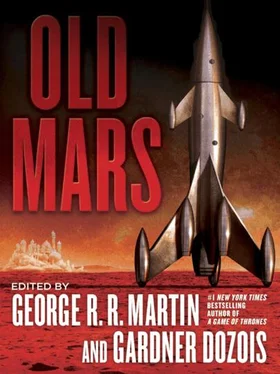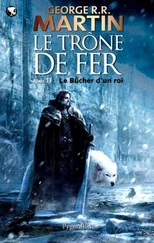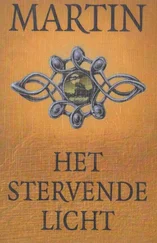“Normal Bean,” he named himself when he sent his story off to the editors at The All-Story magazine in 1911. Someone thought that was a typo (it wasn’t), and “Under the Moons of Mars” was bylined “Norman Bean” when it began its serial run in February 1912. The writer behind the pseudonym was Edgar Rice Burroughs. The serial would be retitled A Princess of Mars when its installments were collected together and republished in book form in 1917. Under that title, it would remain in print for the better part of a century, and give birth to numerous sequels, spin-offs, and imitations.
Barsoom was the name that ERB’s Martians (green and red both) gave their dying desert planet. Burroughs took Lowell’s notions and ran with them, filling up the red planet with Tharks and thoats and flying boats, with radium rifles and white apes and atmosphere plants, with daring swordsmen and egg-laying princesses clad only in jewels. Though never a great writer, ERB was a master storyteller, and in John Carter and Dejah Thoris he created two characters that generations of readers would come to love and cherish, their popularity eclipsed only by that of his other creation, the jungle lord called Tarzan. Ten more Barsoom novels would follow over the next half century, some featuring John Carter, some other characters … but the world that Burroughs had created, his Mars, with all its lands and peoples, would remain the true star of the series, from the first to the last.
Barsoom was his, and his alone. But Percival Lowell’s books and theories were out there for all to read, and Otis Adelbert Kline, Stanley G. Weinbaum, C. S. Lewis, Jack Williamson, Edmond Hamilton, and myriad other writers soon joined in with their own takes on Mars and its inhabitants. Though E. E. “Doc” Smith had taken science fiction to the stars with The Skylark of Space in 1928, only a few of his fellow scribes ever followed him there. From the twenties to the sixties, most SF writers preferred to remain closer to home, in a solar system teeming with life, where every planet, moon, and asteroid was more exotic than the next.
How many tales were set on Mars during the heyday of the science-fiction pulps? Hundreds, surely. Thousands, probably. Tens of thousands? Maybe. More tales than I can possibly list? Certainly. Most forgettable and forgotten, to be sure, but every tale, even the least and worst of them, helped to make the red planet a little more familiar, a little more real. The Mars of my childhood was not the invention of H. G. Wells or Percival Lowell or even Edgar Rice Burroughs, as important and influential as they were, but rather an amalgam created by many different writers, each adding their own touches and twists over the years and decades to create a kind of consensus setting, a world that belonged to everyone and no one.
That was my Mars. As it happens, I never read the Burroughs novels when I was a kid (I came to them much much later, when I was in my forties, about three decades too late), but I knew and loved the works that ERB’s Barsoom had inspired. My first visits to Mars were in the company of Tom Corbett, Astro, and Roger Manning, the crew of the Polaris in the classic series of juvenile (today we would call them YA) space operas derived from Robert A. Heinlein’s Space Cadet by way of the television series Tom Corbett, Space Cadet . Heinlein himself took me back to a somewhat different Mars in another of his Scribners’ juveniles, Red Planet . I learned about ferocious Martian sandmice from Andre Norton and her doppelgänger Andrew North. In the drytowns, I faced “Shambleau” with C. L. Moore and Northwest Smith. Then came Leigh Brackett and Erik John Stark, another of the great space-opera heroes. Later, a little older, I encountered The Martian Chronicles , and a very different take on Old Mars from the pen of Ray Bradbury, elegiac rather than adventurous, but just as magical, just as memorable.
Roger Zelazny’s haunting, poetic “A Rose for Ecclesiastes” was probably the last great story of The Mars That Was. First published in the November 1963 issue of The Magazine of Fantasy & Science Fiction , the Zelazny story became an instant classic. (Zelazny also wrote the last great story of Old Venus, the Nebula Award–winning “The Doors of His Face, the Lamps of His Mouth.”)
By the time I encountered the works of Bradbury and Zelazny, I was already writing stories of my own. My first efforts were prose superhero stories for the comic-book fanzines of the sixties, but I soon moved on to sword-and-sorcery tales and mysteries and SF, and started dreaming about making a career as a writer. One day, I expected, I would be writing my own Mars stories.
It was not to be. For even as Zelazny was penning his tales of Old Mars and Old Venus, the space race was heating up. I watched every manned launch on our old black-and-white television in our apartment in the projects, certain that I was seeing the dawn of a new age, where all the dreams of science fiction would come true. First came Sputnik, Vanguard, Explorer. Then Mercury, Gemini, Apollo.
Yury Gagarin, Alan Shepard, John Glenn.
And Mariner … oh, Mariner …
It was Mariner that put an end to the glory days of Old Mars … and to its sister planet, Old Venus, wet and watery, with its drowned cities, endless swamps, and web-footed Venusians. Mariner 2 (launched August 1962) was the first successful planetary flyby, reaching Venus after three and a half months of spaceflight. Mariner 4 (November 1964) did the same honors for Mars. Mariner 5 (June 1967) was another Venus probe. Mariner 6 (launched February 1969) and Mariner 7 (launched March 1969) were a Martian double-team. Mariner 8 was lost, but its sister Mariner 9 (May 1971) entered Martian orbit in November of that year, joining Phobos and Deimos to become a third Martian moon, the first artificial satellite of the red planet. Mariner 10, the last of the series, cruised by not only Venus, but Mercury as well … demonstrating that the innermost planet did not, in fact, keep one face perpetually turned toward the sun, as had been previously believed.
And all of that would have been tremendously exciting, only …
The Mars that NASA discovered was not the Mars of Percival Lowell and Edgar Rice Burroughs, of Leigh Brackett and C. L. Moore. The Mariner probes found no trace of cities, living, dead, or dying. No Tharks, no thoats, no Martians of any hue or color. Lowell’s network of artificial canals was not in evidence, and neither was Schiaparelli’s “channels.” Instead, there were craters; the real Mars resembled Luna much more than it did Barsoom. And Venus … beneath those clouds, instead of swamps and dinosaurs and web-footed Venerians, Venus was a toxic hell, volcanic, sulfuric, far too hot for humans to survive.
Mariner’s findings thrilled scientists around the world and gave us a detailed and accurate picture of the nature of the inner planets, but for the readers and writers of science fiction like me, the excitement was mingled with disillusionment and dismay. This was not the Mars we wanted. This was not the Venus of our dreams.
I never wrote that Mars story. Nor any stories on Venus, or Mercury, or any of the worlds of the “lost” solar system of my youth, the worlds that had provided the setting for so many wonderful tales during the thirties, forties, and fifties. In that I was not alone. After Mariner, our genre moved to the stars in a big way, searching for the colorful exotic settings and alien races that could no longer be found here “at home.”
Science fiction did not entirely abandon Mars as a subject after the Mariner probes. The occasional story and novel continued to be written. But these new tales were set upon the “new Mars,” the real Mars, Mariner’s Mars … where canals, dead cities, sandmice, and Martians were conspicuously absent. Kim Stanley Robinson’s award-winning trilogy about the colonization and terraforming of the fourth planet— Red Mars, Green Mars , and Blue Mars —was the most ambitious and memorable of those, and a worthy effort it was.
Читать дальше












